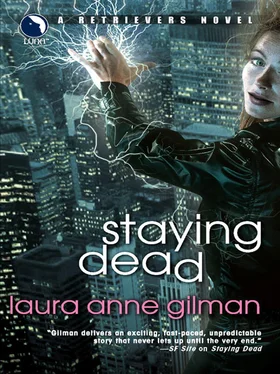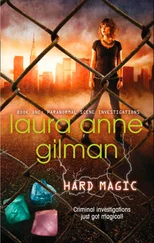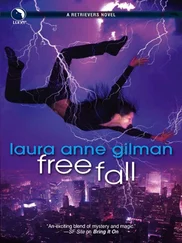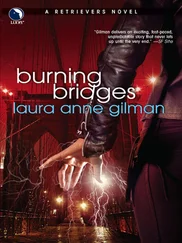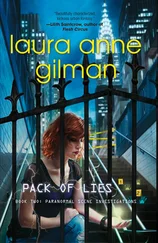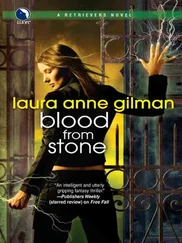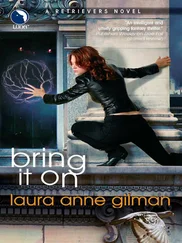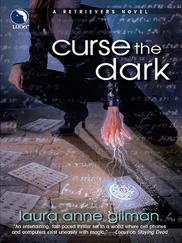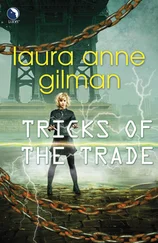1 ...7 8 9 11 12 13 ...17 A well-trained, thinking associate was a blessing to their manager. “Excellent. Marco, see that it’s done.”
One of the men nodded his head, and turned to leave the room. His pace was perhaps a shade too swift for propriety, but Frants didn’t call him on it. A little fear, leavened by generous bonuses, made for excellent working conditions.
Denise had stiffened when he gave her idea to someone else, but she didn’t allow any resentment or anger to show on her face. Good girl. He would have to reward her when all this was done.
“Randolph?”
The remaining man came to attention, his shoulders going back in an automatic response. You could take the boy out of the Corps, but…
“Could you please speak to Allison in Human Resources, have her write up a press release stating that we had an unfortunate attempt on our security, but that we have every faith in the systems we use, and do not feel that there is any need for alarm, etc. If this bastard did take the stone to try and undermine Frants Industries, he will have to work harder than that. Much, much harder.”
Randolph nodded and performed a sharp about-face, covering the plush carpeting between him and the door with a steady, measured stride.
“Sir?” Denise said, when he sat down behind his heavy mahogany desk, to all appearances having forgotten she was still there.
“Ah yes, Denise.” He looked at her, his pale blue eyes cold, dispassionately calculating. “It may be that this is not the act of a business competitor, but someone perhaps a bit more…directly connected with the particular object which was taken. If that is—an extreme possibility, I agree—but if that is so, then I think that we may need to take further steps than even the ones you had suggested. If you would give me your arm, please?”
Denise had worked for Oliver Frants most of her adult life. She knew what he was asking. And, to her credit, she didn’t flinch as he reached into his desk drawer, and pulled out a small, intricately woven straw box with an oddly liquid design, like an hourglass but not, on the lid. He slid the box across the table toward her, and something inside it shhhhhssssssshhhed like old grass in the wind.
The assistant still sitting at her desk heard a noise in the main office. A sibilant, sharp noise, like metal on metal. A wet slap, like flesh on flesh, and a muffled moan of agony. And then silence.
She placed her hands palm down on her desk, stared at the well-manicured fingers that cost fifty dollars every single week to keep in ideal condition, and swallowed hard.
Wren spent the rest of the afternoon reading up on the newest generation of motion detectors—not her idea of light reading, but essential to keeping up to date in her particular line of work. Sometimes, for whatever reason, you couldn’t use current. Wren refused to be caught with her pants down if and when that happened to her.
Sprawled on the carpet in the third bedroom, which was otherwise filled with her considerable research library, engrossed despite herself by journals with ten-point type and convoluted electrical diagrams, time got away from her.
“Ah, hell,” she muttered when she actually glanced down at her watch. She shuffled the journals into a messy pile and left them there, closing the bedroom door firmly behind her. One finger pressed against the knob and a narrow thread of current flowed from her to wrap around the metal mechanism, locking the tumblers in place. Not that it would keep out anyone determined to get in, but the spell was tied to her just enough to let her know if the attempt was made. She could have coaxed some elementals into baby-sitting for her, to act like a siren if the thread was broken, but the reality was that when she saw elementals clustered, that drew her attention to the lock rather than away. And why put up a sign saying “important things behind this door” if you were trying to keep people out?
She grabbed her keys from the bowl in the kitchen, shoving her feet into a pair of low-heeled boots as she headed out the door, locking it carefully behind her with the more commonplace and nonmagical dead bolts every New Yorker installed as a matter of course.
Three-quarters of the way down the narrow apartment stairs, she realized that she had left the folder P.B. had given her on the kitchen table.
“Grrrr…urrrggghh.” She reversed herself midstep and dashed back up, knocking open the four dead bolts and grabbing the bright orange folder. Locking up took more precious time, and she was swearing under her breath in some colorful Russian phrases she had picked up from Sergei by the time she finally hit the street.
With all that, despite the fact that she was only walking a few blocks, it was closer to seven forty-five before she made it to Marianna’s. She paused on the street outside the tiny storefront, clutching the folder in her hand as though she might forget it again somewhere, and checked her appearance in the reflective glass door.
She thought about the lipstick she had left untouched on her bathroom counter, and made a face at herself. You don’t need to put on a face for Sergei, for God’s sake, she snarled mentally. He’d seen her at three in the morning, drenched in sweat and splattered with both their blood, and not blinked. So long as she didn’t actively embarrass him in a social setting, she could paint herself in blue-and-green stripes and he’d just say something like, “Interesting outfit, Genevieve.”
And why did it matter, anyway? If there was one thing she knew, without a doubt, it was that Sergei gave a damn about what was inside, not out. So why did that thought, increasingly, make her feel depressed instead of comforted?
Job, Valere. Job.
Squaring her shoulders, she pushed open the door. Callie looked up from her seat at the bar, saw it was her, and merely nodded toward the table where Sergei was waiting.
Wren shook her head in mock disgust, although she wasn’t sure if it was at herself or her partner. Well, of course he was there before she was. Odds were good that he had arrived at exactly seven-twenty-nine, trench coat over one arm, briefcase at his side, taken one look at the restaurant, saw she wasn’t there yet, sighed, and requested a table in the back and a glass of sparkling water, no ice.
“Been here long?” she asked, slipping into the seat opposite Sergei. He looked up from his notepad, then looked at his watch. “A little over fifteen minutes,” he said, confirming her suspicion.
In a simple but expensive gray suit and burgundy tie, Sergei could have passed unnoticed in the carpeted halls of any brokerage house. Broad-shouldered, with a close-cropped head of dark hair and a nose that was just a shade too sharp for good looks matched to an astonishingly stubborn square chin, he could just as easily have been a former quarterback-turned-minor-league newscaster, or a successful character actor.
What he was, in fact, was the owner and operator of a very discreet, wildly overpriced art gallery. It was through the gallery that he made the contacts who often had need of Wren’s services: private citizens, mostly, but also the occasional museum or wholesaler who didn’t want to go through the police or—even worse—the insurance companies to reclaim their stolen artwork.
And, on occasion, something a little more…unusual. Like this case. Sorry, she amended even though Sergei couldn’t hear her thought, this situation.
Callie came over, wiping her hands on the front of the white apron tied around her waist, and stood by their table, one bleached-blond eyebrow raised. “Your usual?” she said to Wren.
“Nah, I think I’ll live dangerously.” She scanned the chalkboard behind the bar with a practiced eye. “Give me the Caesar salad and the filet of sole.”
Читать дальше
